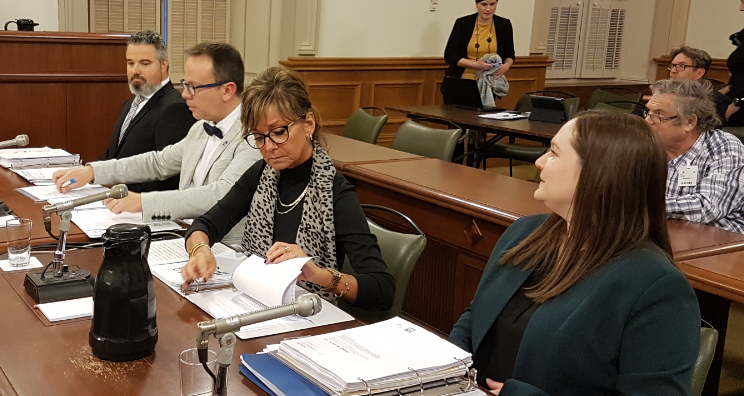
Bill No. 43 regarding specialized nurse practitioners
Key opportunity for granting SNPs more professional autonomy and facilitating care access
The President of the Fédération interprofessionnelle de la santé du Québec–FIQ, Nancy Bédard, and Jérôme Rousseau, FIQ Vice-President, presented the organization’s brief today to the Commission de la santé et des services sociaux in response to the consultations and public hearings about Bill No. 43, An Act to amend the Nurses Act and other provisions in order to facilitate access to health services. The FIQ President also spoke on behalf of the FIQP | Secteur privé, which represents healthcare professionals who work in private healthcare institutions and private subsidized healthcare institutions.
The FIQ has an overall positive view of the bill and the efforts to modernize Quebec’s Nurses Act, which hasn’t changed much in the last decade. “It’s a step in the right direction to breaking down barriers around certain medical services to facilitate care access for the Quebec population, especially with the addition of the three new professional activities that could allow SNPs to further meet patients’ needs,” explained Nancy Bédard.
Quebec is behind the times
Despite certain advances for SNPs and increased recognition of their role in this bill, it is clear that Quebec could do more when you compare its SNP practice to that of SNPs in the rest of Canada. The FIQ has found that other provincial governments grant more recognition to SNPs’ powers and give them more autonomy. As a result, patients can access a broader range of services through SNPs whose practice is completely autonomous.
SNPs in other provinces can diagnose all illnesses and disorders, set fractures in casts, administer allergy tests, hospitalize patients and grant leaves, as well as prescribe a leave from work. They can also refer patients, as needed, to other healthcare professionals, including other SNPs and medical specialists.
“It is crucial that the Quebec population gain equivalent access to health care provided by SNPs. These professionals are essential to meeting the constantly growing demand for care and services,” said Ms. Bédard. “The Ministère de la Santé et des Services sociaux has set a target to have 2,000 SNPs in Quebec by 2024-2025. To meet this important target, the government needs to update the Quebec SNP professional practice and make it as attractive as in other Canadian provinces,” concluded the President.
In its brief, the FIQ talks about fundamental obstacles to care access in the bill that it would like to see transformed into opportunities. It provides recommendations on how to allow the population to fully benefit from SNPs’ skills, as they are professionals who are among the most highly trained in Canada.
To read the FIQ’s brief
